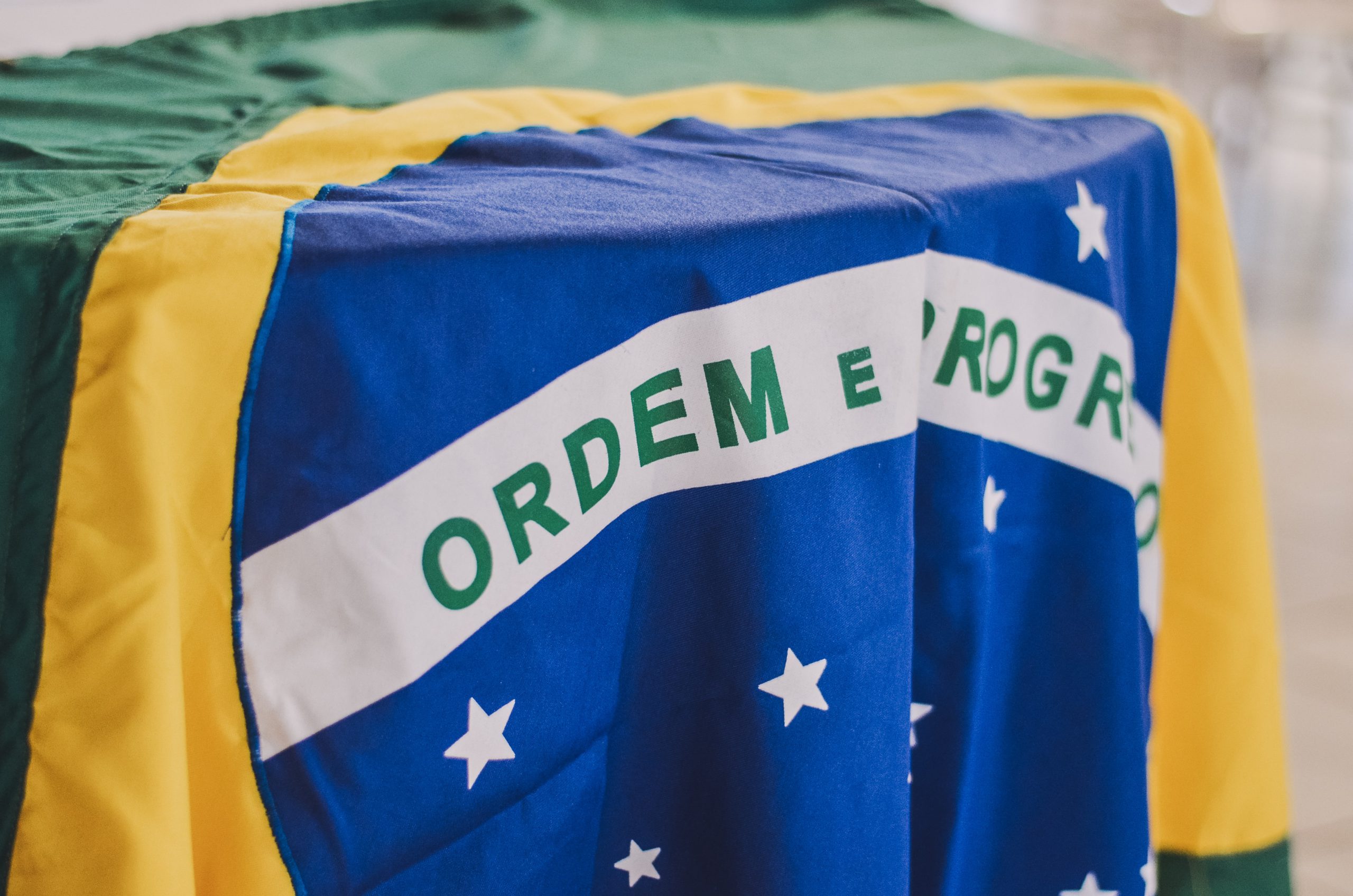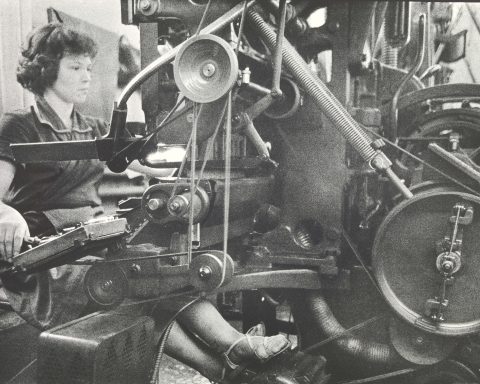In case you haven’t heard, there’s been an unfolding freak show of corruption in Brazil over the past months, right and left. There are so many scandals and ratting out episodes – seemingly a new one everyday – that it’s difficult to keep up.
This corruption blob had been clogging the system for decades. But now it’s like lots of people decided to pour chemicals into the drain at once in order to purge whom they didn’t like. Then they ended up being purged themselves (often as payback), or otherwise screwed. Now more dirt, an endless stream of it, keeps popping out.
But I’d like to put that aside and take a moment to mourn the present fall of the Brazilian left.
At least one group in Leipzig is mourning it, as well: Leipzig Contra o Golpe no Brasil, or “Leipzig Against the Coup in Brazil.” I met some of them recently, in an academic lecture they held in a leftist organization building in Lindenau. Many are young, politically engaged Brazilians. Some Germans have joined in too.
The group has also held protests against the ousting of Workers’ Party (PT) President Dilma Rousseff. The Brazilian left characterizes her impeachment earlier this year as a coup orchestrated by right-wing politicians and media. They are seen as instrumentalizing thousands of ordinary citizens of the middle and upper classes (the “privileged”) towards their filthy aims disguised as concern for the country.
It was a sad impeachment for many reasons – not the least of which was the current demise of a progressive trend in Brazilian society, and the fact Rousseff was our first female president. There are other historic reasons I’d like to discuss more in depth now.
The Brazilian left had been waiting a long time to rule the country again.
Nearly 40 years had passed since the presidencies of Jânio Quadros and João Goulart, which had brought Brazil diplomatic and economic rapprochement with budding African states and socialist leaders. The right wrestled power away from them by staging a military coup with the backing of the United States in 1964. The presidents’ impetus was misread as socialism when it had actually been pragmatism. A similar scenario would take place when the next leader backed by the leftist camp in politics, Lula, ascended to Brazil’s highest office in 2003.
At that time, as right now, Brazil was undergoing economic problems. Back then this was coupled with Uncle Sam’s communist paranoia. Today, some in Brazil are calling for a return of the military regime. Their paranoia seems to relate to anyone who is not white and well-off.
Luiz Inácio Lula da Silva didn’t fit the bill for the elite. He had been a labor union leader without a college degree. He ran for president three times since Brazil’s democratization in 1985, before finally winning in 2002.
The victory of the PT candidate prompted popular demonstrations of euphoria by the less privileged. Under Lula, there was once again significant rapprochement with the African states – whose markets were now riper for exploration – and with states outside the Western alliance.
Lula was friendly with Hugo Chavez and Fidel Castro, besides maintaining cordial relations with U.S. leaders. Brazil was legitimized as one of the BRICS, as an emerging power and development donor. His government aimed to diversify partnerships. His intensive diplomatic action aimed at various routes to expand Brazilian capital, opening doors for state-owned as well as private enterprises in their ambitious projects abroad.
Lula’s pragmatism as president earned Brazil important commercial, political and development-related deals with various states and leaders from different sides of the political spectrum. It also earned him criticism.
From the point of view of the neoliberal conservatives (“neocons”), there wasn’t enough privatization going on. The Brazilian state kept control of oil giant Petrobrás, and its development bank had taken to reportedly investing more annually than the World Bank. Since well before the PT came to power, corruption has been rampant in the companies owned by or cooperating closely with the state; but it wasn’t until now that the PT opposition decided to become righteous and “wash them.” Under the leadership of filthy figures such as Rousseff VP Michel Temer (now President of Brazil), they used this and other artifices to bring the PT down and take back power, but their downfall was also close at hand.
Perhaps more controversial even were the social and other domestic policies the Lula government implemented, and which his successor, President Rousseff, would continue after 2010.
In line with the rapprochement with African states, the PT mandated a quota system to admit more black (and other minority) students into universities in Brazil. Teaching Afro-Brazilian heritage in schools also became a requirement. Meanwhile, many poor people were lifted into the lower middle class due to a government subsidy to keep children in school, called Bolsa Família.
Conservatives in Brazil felt a bit like conservatives in Germany. They felt like the opening towards the blacker and less privileged was polluting their social space – in Germany, it’s been about refugees; in Brazil, about fellow Brazilians. They were resentful because they didn’t feel that their concerns (however misplaced) were being heard or that they were being represented.
More so than in Germany, Brazilians felt the state wasn’t providing them services – better hospitals, schools, transportation – while investing the money elsewhere. Namely, in helping the poorer and building stadiums for World Cup 2014 (perhaps paradoxically, as this displaced many favela dwellers). The Brazilian state also seemed to have plenty of money to build infrastructure abroad via its development bank. Meanwhile, PT party members were already falling down over corruption charges – which are coming ever closer to catching up with Lula. Fair enough that people would be upset about all this.
However, this is not where the story ends. Conservatives just couldn’t bear seeing leftist PT bringing Brazil to international prominence, hosting the world’s two most important sporting events (the Olympics too). The “neocons” – in the echelons of power as well as in the ranks of “concerned citizens” – both helped drive and jumped on the bandwagon of protests against the government. Crying out against a hike in bus ticket prices and the World Cup itself was just the tip of the iceberg.
Between 2013 and 2016, a smear campaign against Rousseff gained momentum in right-leaning media outlets.
The left dubbed them the “Partido da Mídia Golpista,” or “Party of the Coup-Bent Media.” The movement swept across social media and spilled out into the streets. People with well thought-out arguments for not supporting the PT government were likely outnumbered by masses who drew their worldview from social media and found an outlet for their deeply ingrained annoyance and anger living in a developing country.
The latter were really the dangerous ones for spreading hatred and misinformation, as has been the case with a large swath of Donald Trump supporters in the U.S. Many in Brazil shouted anti-Dilma slogans without knowing what they really meant or what her ousting could come to represent for the country. She is likely less corrupt than most Brazilian politicians at the national level. Do they ever ask themselves what the hell they have done?
These citizens did become tools of politicians and opinion-makers who wanted to get her out. The revelations of corruption against her own accusers and detractors later would not be enough to stop the wave that ejected her from government.
With this backward movement, Brazil joins the globalizing current moving farther and farther to the right – and that’s what I am truly mourning, rather than one or another politician I feel no personal sense of loyalty to. As a Brazilian-American living in a Germany also succumbing to the right, I can’t help but feel a bit helpless and lost, without a social space I can truly call home.









